How Hashtags Can Hurt A Brand
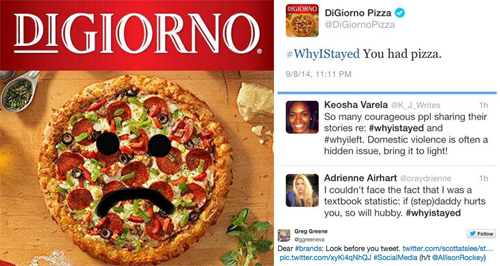
Brands, big or small, will take on risks by simply being on a social outlet. What a hashtag campaign does is open up an impromptu forum amongst Twitter users that highlight experiences with a company. While brands hope for a positive reception, sometimes their hashtags take a turn for the worse. Brands can receive negative impact from both their own and other Twitter-user generated hashtags, which they have no control over.
Urban Outfitters is not new to marketing campaigns gone wrong; they have been criticized before for selling a sweatshirt that mocked one of the darker moments in Ohio’s history.The latest Twitter hashtag campaign against them, #UrbanOutfittersBeLike, exploits Urban Outfitters’ outrageous pricing for items by using a lengthy or lavish product description. Urban Outfitters did not respond, despite the high number of tweets bashing the brand.
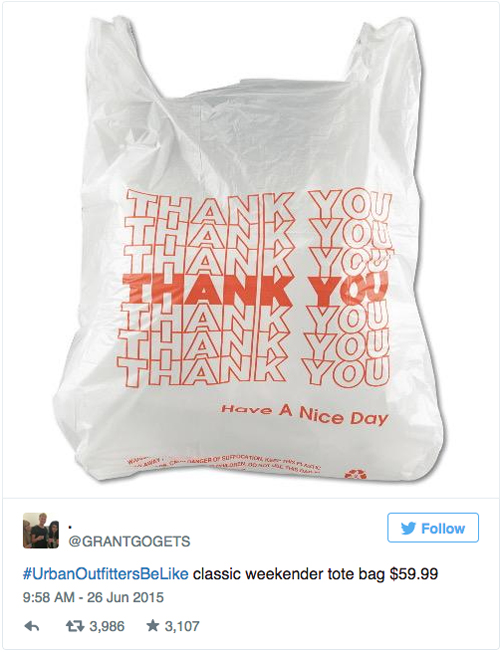
The #WhyIStayed hashtag was created to raise awareness for domestic abuse. As many know, DiGiorno, known for their pizzas and off-the-wall tweets, hijacked the hashtag in bad taste citing “#WhyIStayed You had pizza.” In only four minutes, thousands reacted to this act of tactlessness and DiGiorno apologized stating that they did not read what the hashtag was about. DiGiorno has since been wiser on choosing which hashtags to use and still keeps their wits.
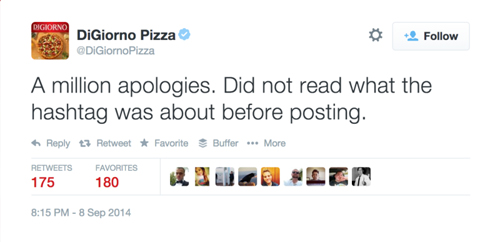
When Twitter offered promoting hashtags for brands, Walgreens jumped at the idea and promoted #iLoveWalgreens. There was not any major controversy behind the hashtag, however it made no sense on why the company decided to promote it. Tweets from individuals using the hashtag were funny, remaining generally neutral, however altogether confused. The takeaway here is that brands should not promote a hashtag for the sake of promoting hashtags.
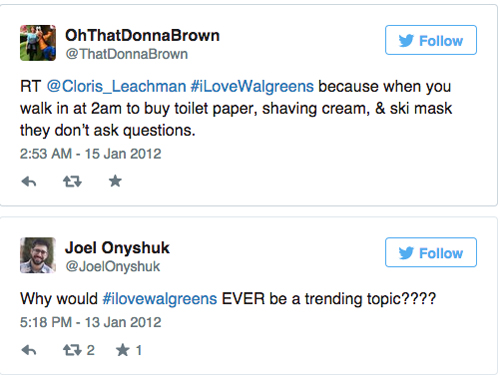
Even social media agencies can tarnish their client’s image. In 2012, a tweet from Chrysler had a few choice words describing the irony between Detroit’s “Motor City” name and the skill of its drivers. The twitter manager was not aware that they were tweeting via Chrysler’s account instead of their personal account, which potentially reached over 8,000 users. Chrysler then apologized and fired their agency, New Media Strategies, and announced that they will not renew their contract with them.
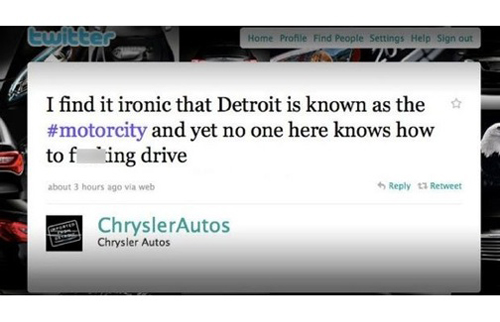
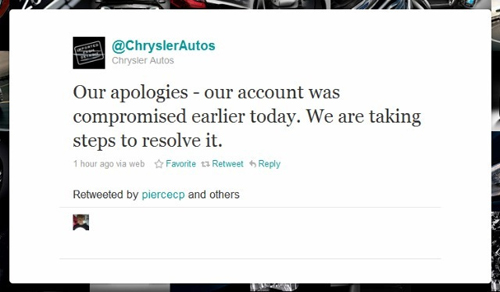
What brands should keep in mind is that using Twitter for marketing opens the brand to all sorts of interaction, both positive and negative. The best way to alleviate negative reactions is to own up to the mistake and apologize. Companies typically utilize social media to humanize the brand, and making mistakes is part of human nature.
Information and images courtesy of © Digiday, Business Insider and Mashable
